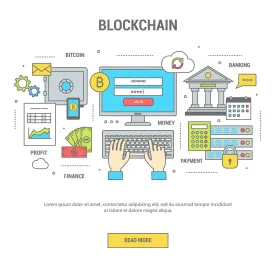With the world slowly coming out of the COVID-19 lock down and the economy hopefully on the path to recovery there have been many developments in the blockchain / crypto space over the last few weeks.
Telegram – Mixed Messaging and Maybe the End of the Line
Telegram, the messaging application which last year raised about $1.7 billion toward the launch of a proposed digital asset called GRAMS that would operate on a proprietary blockchain called TON, has been one of the most active stories of the last few months.
In our last update, we reported that the Southern District of New York issued a preliminary injunction blocking Telegram’s proposed launch of its TON blockchain and related distribution of Gram tokens. This injunction follows an emergency restraining order obtained by the SEC in October 2019 delaying the launch of the TON blockchain.
At that time, Telegram delayed the launch to April 30 and asked investors to approve the delay and to revisit the issue at the new start date, or not approve the delay, in which case Telegram would give investors the ability to terminate their purchase contracts for a percentage of the purchase price (reported to be 77% of the purchase price in October and 72% now).
This termination right triggered on April 30, but Telegram extended to its investors yet another option – those investors who do not wish to terminate would instead be repaid 110% of their purchase price a year from now if the blockchain has not launched or the issuance is still prohibited.
Telegram then changed course – while investors previously had the option to be repaid in tokens, which would amount to more than their initial purchase price, Telegram rescinded that offering, telling investors in its TON blockchain they would not be paid back in tokens and, in addition, that Telegram was looking to buy out American investors immediately.
A few days later, TON Labs, a startup that helped Telegram establish the test network for the TON blockchain and is comprised of investors in Telegram’s and or the token presale, attempted to salvage the project and announced its launch of a free version of the TON blockchain. This unofficial fork, called Free TON (and the “The Open Network” rather than “Telegram Open Network”), does not officially involve Telegram at all and utilizes “TON crystals” rather than grams as the native virtual currency. Since Free TON is purportedly identical to the original token developed by Telegram through its open source code, the potential for profit investors who prepaid for Gram tokens has been largely eliminated.
On Tuesday, May 13, Telegram made an announcement that while unsurprising has sent shock waves through the world of fintech, Telegram was discontinuing the blockchain project. It appears that Telegram might still be associated with Free TON, as the TON Labs website states that the concept behind the project “implies gradual integration of Telegram and TON.” It appears that the end result is that the project is still launching as intended but investors in Grams will only receive what Telegram is able to “refund” and now have little potential upside.
The failure of the Telegram token sale provides more questions than answers for the Fintech lawyers and innovators. How does the failure of Telegram bode for KIK which appears to have actually sold securities to the public, something that Telegram did not do? Kik has argued that Telegram is not relevant to their claims. What does the failure of Telegram, a firm represented by top tier legal counsel, mean to smaller innovators looking to launch their own ICO’s?
Blockvest Receives “Terminating Sanctions”
The SEC successfully landed another blow in its ongoing battle with Blockvest, LLC for alleged securities fraud and the sale of unregistered securities. The Honorable Michael S. Berg, a federal magistrate for the Southern District of California, recommended granting terminating sanctions against the Wyoming-based blockchain company for filing false and forged affidavits with the court. Terminating sanctions are a severe remedy rarely imposed, except in extreme instances of grossly improper litigation behavior. Once terminating sanctions are applied, a default judgment is entered against the defending party, depriving it of a trial and generally dismissing the case.
Blockvest found itself under SEC investigation after raising $2.5 million in a pre-ICO sale of tokens that it neither registered with the SEC nor qualified for an exemption from registration. The SEC’s complaint further alleged that Blockvest not only falsely-claimed to be a “licensed and regulated tokenized crypto currency exchange and index fund,” but also falsely-claimed to be “registered” and “approved” by the SEC—putting Blockvest squarely in the SEC’s crosshairs.
CFTC Gives Fraudulent Trading Platform the Fingerhut
The CFTC recently filed a multi-million dollar fraud action claiming Daniel Fingerhut, Digital Platinum, Inc., Digital Platinum, Ltd., Huf Mediya Ltd., and persons that control the three entities created fraudulent marketing materials which promised profits with no risk of loss and disseminated them via email spam and by making videos available online.
According to the CFTC, over 59,000 customers opened and funded trading accounts as a result of these fraudulent marketing campaigns, generating over $20 million in commissions to the defendants.
Following the lead of similarly unsuccessful wannabe powerbroker Billy McFarland and Magnises, the defendants marketed the success of their platform with actors posing in front of props such as mansions and private jets – proving that all of us can fall suspect to illusions of grandeur from time to time.
An Ode to Joy- Congressional Research Service’s report on FinTech Innovation and Policy
On April 28, 2020, the Congressional Research Service (CRS) published an in depth report related to Fintech, titled Fintech: Overview of Innovative Financial Technology and Selected Policy Issues. This report focuses on providing an overview of all types of FinTech, including blockchain and initial coin offerings (ICOs) and provides some discussions of potential legal and policy ramifications.[1]
The Congressional Research Service, sometimes known as Congress’s think tank, is a nonpartisan research institute that provides policy and legal analysis of both the House and Senate as well as to each of their committees. The report discusses the potential benefits and challenges associated with FinTech innovation, including underlying technological developments, technological innovations in finance, and potential regulatory approaches.
One of many interesting observations in the report concerns personal information and regulation. Fintech lenders currently use large amounts of data--much of it unreported, about prospective consumer borrowers in conjunction with algorithmic underwriting when deciding to make a loan. Although there are clear advantages to having such data, when these FinTech lenders work with banks such partnerships implicate privacy and regulatory restrictions on consumer data which may not be otherwise accessible to banks, since banks operate under strong consumer privacy rules.
In discussing ICOs, the report highlights what it sees as a main difference between an ICO and an IPO—that generally, in an ICO, issuers are able to transfer a digital asset without an intermediary or geographic information. A nuance that often gets lost in the discussion of digital assets—data in the form of personal identification—also circles around control and potential anti-money laundering/OFAC concerns. These issues have, and will continue to be a point of friction between U.S. lawmakers and regulators and cryptocurrency users and supporters.
One final interesting note in the report is that between 2013 and 2017, the amount of money lent by FinTech platforms has increased a whopping 608%.
IA Security by Any Other Name Would Smell As Sweet
“A rose by any other name would smell as sweet.” Like the Shakespearean rose, Ripple Labs faces another claim that its digital asset XRP is a security in a new federal lawsuit in California. The suit filed by Bitcoin Manipulation Abatement LLC, claims Ripple’s XRP is an illegally offered security. The plaintiff alleges that Ripple violated federal and California state law by offering and selling unregistered securities without a registration or an exemption from registration, and that Ripple engaged in false advertising and unfair competition. Ripple is yet another cautionary tale of an issuer of a digital asset that was used to raise capital from purchasers in a manner that made it look like a security.
The suit by Bitcoin Manipulation Abatement LLC is far for from the only legal challenge facing Ripple Labs, and its affiliates, as it follows their failure to have the class action filed against it by Ripple Labs Inc. Litigation dismissed on February 25, 2020 and the amendment complainant filed by Ripple Labs Inc. Litigation on March 25, 2020. The amended complaint alleges, among other things, that Ripple Labs CEO Brad Darlington committed fraud by publicly said in the media and on Twitter that he was “long XRP” but in reality he was regularly selling XRP tokens.
Just a Drop in the Bucket: SEC Charges Dropil with Defrauding Investors in Unregistered ICO
The SEC recently filed suit against Dropil, Inc. (“Dropil”), Jeremy McAlpine, Zachary Matar, and Patrick O’Hara, alleging the defendants had defrauded investors in an unregistered offerings of securities described by the defendants as an initial coin offering (“ICO”).[2] The SEC has brought and settled a number of enforcement actions involving ICOs with it deems to be securities.
According to the SEC’s complaint, Dropil sold roughly $1.8 million of its DROP digital assets which appear to be illegally offered securities that were described by Dropil as “tokens.” The DROP tokens were sold to thousands of investors between January and March 2018. Dropil informed investors of their plan to pool investor funds in order to trade various digital assets via a purported “trading bot” named Dex. Investors were told Dex would use Dropil’s proprietary trading algorithm. Under Dropil’s plan, as Dex’s trades realized profits, investors would receive compensation every fifteen days in the form of additional DROP tokens. Unfortunately for investors, there is no record that Dex ever operated or generated any trading profits.
The SEC got the “drop” on Dropil after its investigation found that Dropil used investor money for other projects and diverted funds into the founders’ own digital asset accounts. Of the $1.9 million raised, approximately $1.4 million was transferred to the founders’ personal digital asset accounts.
Welcome to “Fight” Club – MEMX Securities Exchange Approved by SEC
“Welcome to Fight Club.”[3] Like the fighters in Fight Club, the Members Exchange (MEMX), a new fighter has entered the ring of nationally recognized securities exchanges fighting for volume. MEMX is a new exchange registered with the U.S. Securities and Exchange Commission (SEC) that is backed by major Wall Street firms that will compete with a number of securities exchanges including, the New York Stock Exchange and Nasdaq. MEMX Chief Executive Officer Jonathan Kellner said in a statement, “We are excited to earn SEC approval in this challenging environment and appreciate the [SEC]’s thoughtful and timely review of our application.”[4]
MEMX will enter the exchange fight club to compete with 13 other U.S. securities exchanges. MEMX founders include Bank of America Corp, Citadel Securities, Charles Schwab Corp., E*Trade Financial Corp., Fidelity Investments, Goldman Sachs, Jane Street Capital, JPMorgan Chase & Co., Morgan Stanley, TD Ameritrade Holdings Corp., UBS, and Virtu Financial. MEMX expects to launch later this year.
Don’t Judge a Tradebook by Its Cover
The Securities and Exchange Commission (SEC) recently filed settled charges against Bloomberg Tradebook LLC (Bloomberg) for making material misrepresentations and omitting material facts about how the firm handled certain customer trade orders. [5] The SEC’s order finds that Tradebook routed certain customer orders using an undisclosed arrangement that it referred to internally as the “Low Cost Router.” Tradebook’s marketing materials claimed Tradebook’s “advanced” technology, including its Smart Order Router (SOR), would determine the market centers to which customer orders were routed. Tradebook did not disclose that, contrary to these representations, routing decisions for some of the customer orders affected by the Low Cost Router arrangement were not made by Tradebook, but by unaffiliated broker-dealers. Tradebook provided customers with information about the identity of the market centers where some of the orders placed through the Low Cost Router were executed that was unverified and, at times, without basis. During the Relevant Period, one of the services Tradebook offered to customers was the routing of orders to buy or sell stock to various market centers, including registered securities exchanges and alternative trading systems (ATSs), for execution.
The SEC’s order finds that Tradebook violated Section 17(a)(2) of the Securities Exchange Act of 1934 which makes it unlawful for “any person in the offer or sale of any securities … directly or indirectly … to obtain money or property by means of any untrue statement of a material fact or any omission to state a material fact necessary in order to make the statements made, in light of the circumstances in which they were made, not misleading.” Tradebook agreed to be censured and to pay a $5 million penalty, an amount that reflects Tradebook’s significant cooperation with the SEC staff.
Upcoming Webinars
SEC Regulation of Digital Asset Trading Platforms Webinar
Polsinelli’s FinTech and Regulation Practice is presenting three webinars related to the FinTech world in the coming weeks, each of which is presented by Richard Levin, Peter Waltz, and Daniel McAvoy. The webinar on May 19, 2020, will discuss when digital asset trading platforms are subject to regulation by the SEC, how to register with the SEC and the Financial Industry Regulatory Authority (FINRA) as a broker-dealer, or an alternative trading system (ATS), and how to register with the SEC as a securities exchange.
Regulation Best Interest and Form CRS
On May 26, 2020, the same speakers will discuss the SEC’s examination priorities concerning the soon-to-be-effective Regulation Best Interest and the requirement for registered broker-dealers and registered investment advisers to provide the new Form CRS.
SEC Enforcement Expected to Surge on COVID Volatility
On May 20, 2020 Polsinelli’s FinTech and Regulation Practice is joining with our Government Investigations Practice to present a webinar on the coming SEC investigations and enforcement actions and DOJ prosecutions. This webinar will discuss the key issues created by COVID volatility for public companies, broker-dealers and investment advisers, and how to respond to the SEC and DOJ when those agencies investigate. This Webinar will be presented by Jason Nagi together with Mellissa Ho and Paul Roshka.
[1] The second report, “Fintech: Overview of Financial Regulators and Recent Policy Approaches, will be the subject of a separate article.
[2] Securities and Exchange Commission v. Dropil, Inc., Jeremy McAlpine, Zachary Matar, and Patrick O'Hara, No. 8:20-cv-00793 (C.D. Cal., filed April 23, 2020), available at https://www.sec.gov/litigation/litreleases/2020/lr24804.htm and https://www.sec.gov/litigation/complaints/2020/comp24804.pdf.
[3] Chuck Palahniuk, Fight Club the novel; see also David Fincher and Jim Uhls, Fight Club the movie.
[4] Members Exchange Receives SEC Approval to Operate U.S. Securities Exchange (May 5, 2020), available at: https://www.businesswire.com/news/home/20200505005632/en/Members-Exchange-Receives-SEC-Approval-Operate-U.S. A copy of the MEMX application filed with the SEC is available at: https://www.sec.gov/rules/other/2019/memx/memx-form-1.htm.








 />i
/>i
